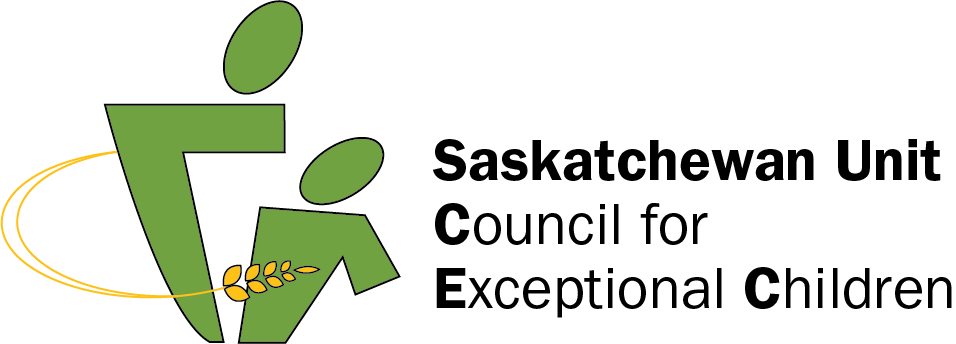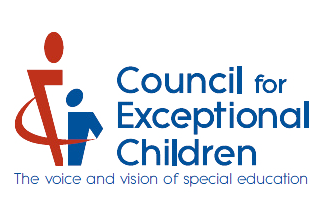Harry Dahl Scholarship
Harry Dahl Scholarship: One academic scholarship and one transition award are available through The Saskatchewan Council for Exceptional Children Scholarships and Awards Program.
Academic Scholarship: This is a $1000.00 academic scholarship intended to support an individual pursuing a career directly related to working with persons with exceptionalities.
Transition Award: This is a $1000.00 award in recognition of an individual who has overcome significant challenges due to a disability in order to achieve his/her goals.
Winner of the 2018 Harry Dahl Scholarship:
Amy Hattum
Who is Harry Dahl?
Harry Dahl, a Council for Exceptional Children (CEC) member since around 1967, is a Canadian
legend. At the age of 74, he is one of only two Canadians who has sat in all CEC positions at
all levels of the structural hierarchy. As an active SK member, he became chapter president of
Moose Jaw, SK, then served as the president of the federation for SK, which was the governing
body for CEC within SK at the time (other chapters were in existence within SK). The
Canadian CEC (CCEC) was the umbrella within Canada of which Harry Dahl was a governor at
large, then later the President. Subsequently, he was elected President of CEC international
(U.S. & Canada) in the late 1980’s. The CCEC brought people together for workshops,
conventions and supported their members in putting together documentation and publications
for Canadian specific content.
According to Harry, back in the 1980’s, there were over 2000 members in Ontario, over 500 in
each of Saskatchewan and British Columbia, with approximately 200 members in each of
Manitoba (MB, and Nova Scotia (NS) plus some members across the rest of Canada.. Overall,
the CEC membership across Canada was just over 4000 whereas CEC international existed
with over 56 000 members. Presently, CEC has about 490 Canadian members with 20 100 CEC
members overall. The CCEC even published a magazine titled Special Education in Canada but
due to the costs, faded away. CCEC had about $40 000 as an operating budget at the time.
Although Harry Dahl played a major part in many roles of the CEC, Harry wore many hats in
his professional career. A teacher and guidance counsellor in the early stages of his career, he
worked for the department of health (like the Ministry) as an educational psychologist and
then as a regional coordinator/superintendent of childrens services for Saskatoon and
surrounding area in Special Education for the Department of Education.
Many changes have taken place over Harry’s lifetime in education. As Harry quoted the poet
Edna St. Vincent Milay, “every generation invents its own country.” Predating the emergence
of the profession of educational psychology teacher training in mental health was compulsory;
all teachers needed the class pertaining to mental hygiene in the classroom. As an
educational psychologist, Harry claims that a ministry mandate, during the 1950s – 1970s was
to have educational psychologists work collaboratively with other agencies (i.e. mental
health, speech therapists and occupational therapists, etc.) and parents to support students
at risk or with exceptionalities (a health department directive). Now, ed. psychologists get
direction from the boards/divisions, not necessarily in conjunction with other agencies, and
usually only have teacher and ed. psych training as their background. This was more of a
movement to allow boards/divisions to operate without the health department and have more
autonomy from an educational standpoint. In the “old days”, ed. psych’s were known to
occasionally put pressure on schools, however now, the boards or divisions employ their own
ed. psychs.
Many other accomplishments for Harry accrued over his last years before and after
retirement. Harry field tested classes for early childhood program workers (i.e. day care
workers and teacher aides) for SIAST in Moose Jaw. He was a sessional lecturer at the
University of Saskatchewan for the Department for the Education of Exception Children, as
well as at the University of Regina. Distance Education for Special Education was privileged to
have Harry create several courses in 2002, the year he finally “retired.” With all the zest in
his younger days, Harry continued to develop programs and act as a consultant into his
retirement.
As a ‘side-bar’, Harry shared some of the history of CEC. Back in the 1920’s, there was a
group of scholars studying at Columbia University, two to three of whom were Canadians
(from Ontario). These people thought it would be a great idea to create a council that would
focus on the education and practices of working with exceptional students…which then
became the Council for Exceptional Children. Saskatchewan became part of the CEC in the
1930’s! Hoorah for us Canadians!!!
Harry now resides with his wife (retired speech language pathologist) and has been coping
with his health for the past few years (sarcoidosis – look it up!)). Their daughter is a Pilates
Trainer in Toronto and around the world: she and her husband live in Italy. Although he just
recently asked to be taken off of the mailing list for publications from CEC, Harry is still a
CEC member to date. The SK CEC chapter continues to provide a $2000 scholarship in his
name ($1000 for transition award; $1000 academic award) annually, which was an idea he
promoted in order to use profit from CEC workshops and give back to the community (see
www.saskcec.org).


